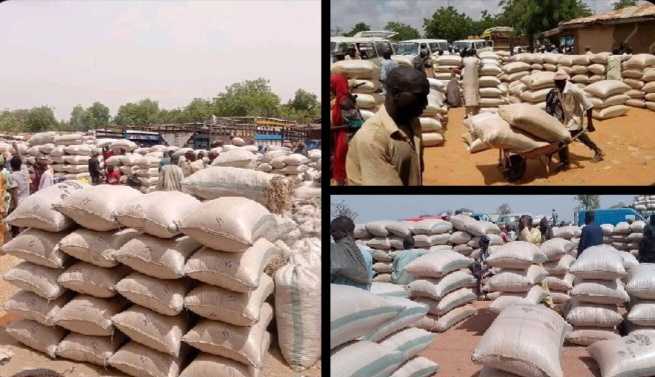By: Abdullahi Inuwa
…Maize, Guinea Corn, and Others Flood Markets, Forcing Down Prices
In a welcome development for consumers and struggling households, the prices of maize, guinea corn, and other staple grains are crashing across local markets, dealing a heavy blow to food hoarders and speculators who had hoped to cash in on artificial scarcity.
According to a market intelligence report compiled by an agricultural pricing expert, this season has witnessed a massive influx of food grains, especially maize and guinea corn, into the market — a surge that is now driving down prices and frustrating those who stockpiled grains hoping for a price hike.
“The market no dey smile with hoarders this time. Prices are falling like never before,” said the expert who has been monitoring trends across major northern grain hubs.
In the latest figures gathered:
- A 100kg bag of maize, which previously sold for over ₦62,000, now goes for as low as ₦38,000 – ₦42,000, depending on the location.
- Guinea corn, another widely consumed staple, has dropped from ₦58,000 per bag to around ₦35,000 – ₦40,000.
- Other grains like millet, sorghum, and soybeans are also following similar trends, with dealers now forced to offload stock at significantly reduced prices.
This sharp drop in prices is being attributed to the bumper harvest, improved road access in rural farming areas, and the resilience of smallholder farmers despite security and climate challenges.
For many Nigerians who have battled skyrocketing food prices in recent months, this is a breath of fresh air. Households are now able to restock food supplies at affordable rates, easing the pressure on wallets and boosting food security at the grassroots.
However, for those who deliberately hoarded grains hoping to create scarcity and profiteer, the tables have turned.
“They wanted to starve the people and make gains, but God pass them this season. The market is teaching them a lesson,” a grain trader in Dandume market, Katsina State, remarked.
While prices are falling, experts are encouraging collective bargaining and cooperative warehousing to ensure that farmers are not exploited during market gluts.
Nonetheless, agricultural watchers say the current trend shows hope for the common man and proves that with the right investment in local farming, Nigeria can defeat food insecurity without relying on imports.
As more grains continue to pour in from farms across the North and Middle Belt, observers believe the era of manipulative food speculation may be drawing to an end — at least for this season.




